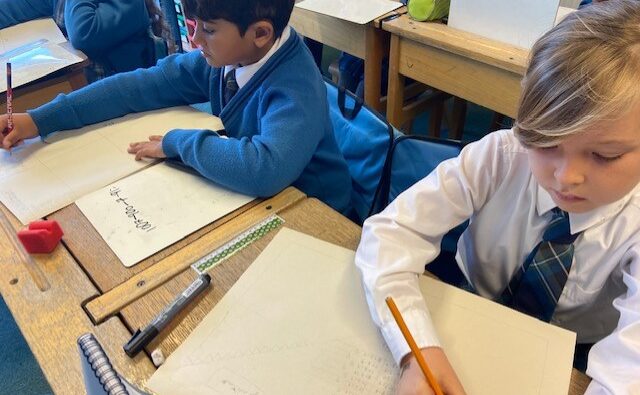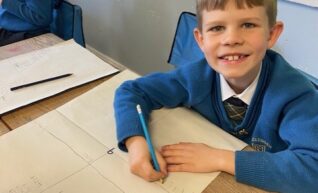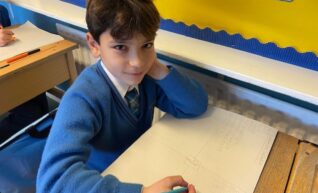In maths, where possible, we apply the knowledge and skills the children have grasped to real life experiences……
So, for example, they will learn how to record information in charts and graphs during their scientific enquiry work. We believe that it is crucially important for children to understand the relevance of mathematics to their lives. With this in mind, we hold workshops annually to support parents and careers to further support our work in maths at home.
Currently, we use the New Math Curriculum, and are keen to keep abreast of all new developments to ensure the success of all our pupils. Our aim is to stretch our most able students and accelerate the learning of those who find maths difficult by offering support and differentiated activities. Class sizes capped at 18 are very favourably in ensuring that the needs of all pupils are met, together with support from a Teaching Assistant, where appropriate. The mental agility of all pupils to hone mathematical skills is strongly favoured. All maths lessons commit some time to the reinforcement and recall of mental facts across kS1 and kS2. We believe robust mental skills greatly facilitate the learning of the more complex written calculation methods and the ability to problem solve. Discussion of methods used to solve written and mental calculations and solve problems is greatly encouraged in whole – class time and group or partner activities in order to develop the ability of all pupils to express ideas fluently, talk about the subject with assurance and to use the language of mathematics….. Mathematics trains the mind and develops logical thinking! In KS1 children have maths lessons most days. In KS2 maths is taught every day. In lessons we aim to meet the needs of all learning style; kinaesthetic, auditory or visual and support the use of numerical tool and ICT programs to ensure this. We ensure that pupils have plenty of opportunities for practical, ‘hands-on’, multi-sensory learning activities in maths to help children grasp key concepts and deepen their understanding.
The maths curriculum is divided into seven areas:
• Using and applying mathematics
• Counting and understanding number
• Knowing and using number facts
• Calculating
• Understanding shape
• Measuring
• Handling data
Children at Windlesham School will be encouraged to develop positive attitudes towards maths and the following personal qualities: − motivation and preparedness to tackle the unfamiliar and unknown – a willingness ‘to have a go’ − flexibility and creative thinking in overcoming difficulties and developing new approaches − perseverance, reliability and accuracy in working through sequences of stages in extended tasks − willingness to check, monitor and control their own work − independence of thought and action as well as the ability to co-operate within a group − systemic habits. Attitudes to foster and encourage include: − fascination with the subject − interest and motivation − pleasure and enjoyment from mathematical activities − appreciation of the power, purpose and relevance of maths − satisfaction derived from a sense of achievement − confidence in an ability to do maths at an appropriate level.
In short, the development of mathematics in all our pupils is a high priority at Windlesham School.






